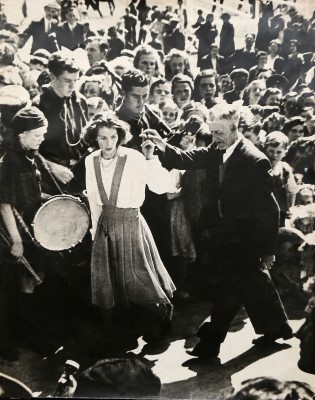SIAMSA TÍRE, the National Folk Theatre of Ireland, has launched a series of on-demand and live dancing workshops designed to share the art of traditional Irish dancing with fans across the world.
The series, titled ‘Sharing the Tradition’, is taught by Jonathan Kelliher, the Artistic Director of Siamsa Tíre and a traditional Irish Munnix Dance Master.
Workshops for beginners are available on demand, as and when students want to view them.
For those with dancing experience, there are live classes at intermediate and advanced levels, which take place every Wednesday for four weeks from the June 9.
“Jonathan dances in a unique way known as the Munnix style,” the organisation explains.
“This style originated in North Kerry in the early 1700s and has since been passed down through the generations by dance masters like Jonathan.”
They add: “He is looking forward to passing it on to even more people through these workshops.”
 The man from whome the Munnix style of dancing originated, James Molyneaux, locally known as Munnix, in action
The man from whome the Munnix style of dancing originated, James Molyneaux, locally known as Munnix, in actionMr Kelliher claims the new series is part of Siamsa Tíre’s plan to share the importance of the traditional Irish arts with the wider world.
“Part of our core mission here at Siamsa Tíre is to explore and share our traditional arts,” he confirms.
“The pandemic meant we had to look at how we could continue to do this with restrictions in place.
“We decided to use technology to share our dance traditions with all those interested in conserving and developing our traditional and folk arts, no matter where they are.”
Dancing experience is an advantage for these workshops, but not required, the organisation has confirmed, as Mr Kelliher will teach the basic steps and show students exactly how they are woven together into a dance.
He also tells the story of Munnix dancing through the workshops and how it has survived to the present day.
The fee for the series of four workshops is €50, which can be booked here.

